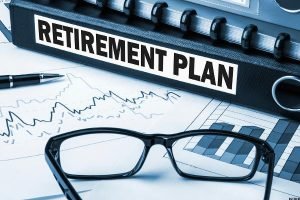Are you already tired of the 9 – 5 routine? And when thinking about your retirement, you realize how far away it is? You cannot even catch a glimpse of it, right? Then you are in the right place.
More than a third of all Americans believe that they will never have enough money to live off of in retirement. A sad story, right? Well, if you are one of them, this is what you need. Economists and experts on retirement have made a 5 step plan for anyone who wants to retire early. Follow these steps, and you will be enjoying your free retirement time before you know it!
“The trouble with retirement is that you never get a day off.” ~Abe Lemons

 Figure out your numbers
Figure out your numbers
What we mean when we say “your numbers” in this context is the approximate sum of money your life will cost you once you retire. There are two numbers you need to figure out:
a) The amount you will need to generate every year after you retire to live and maintain the quality of life.
b) The second number represents your retirement portfolio. To be more precise, the size of it that is needed to create the money you need.
As a general rule of thumb, when it comes to creating a plan that will be able of generating income mentioned in the previous step it is recommended to calculate for at least 80.0% of your current income. Now, this is a decent advice, and it helps those who don’t want to delve too much into it, but we would recommend only thinking about that number as a starting point.
No one can predict the future, especially with the current changes in politics and the economy, so, if you believe your health insurance will cost a lot more than it costs now adjust the number with that in mind. However, if you plan to move to a smaller home or plan to drive less, maybe even sell your car and other things that would reduce your expenses you can lower the number accordingly.
 Reduce your living expenses
Reduce your living expenses
This one is very straightforward, since the amount of money you need to save is relatively large, and you want to retire as soon as possible, you want to save up as much as possible each month. Cutting down on the money-wasting habits will also help you save more money and teach you how to live on the retirement money which, as already mentioned, should be at four-fifths of your current cost of living.
Don’t go out for dinner so often. Shorten your vacations, and depending on where you live, consider moving.
Your life will become less luxurious, but if you want to try and retire in your forties, you might want to attempt saving up to two-thirds of every paycheck.
 Avoid debt
Avoid debt
Being in debt is a massive setback for anyone who wants to retire early. Not only does it lessen the amount of money you can save, but it will also make you get used to being in debt, where a lot of people consider themselves to be financially sound just because they are not in too big a minus.
And, if you do end up being in debt try to pay it off as quickly as possible. A lot of people just try to make minimum payments on their cards, that way the interest is a big issue. You do not want to actually carry some of the debt over into your retirement.
 Don’t spend all your money on your house
Don’t spend all your money on your house

Ok, you got a raise, and you finally have enough money to purchase a house. And you rightfully want to purchase a lovely home, but consider the maintenance cost of having such a house. If you get a huge house with a very big yard you will spend a lot of money maintaining it. If your goal is to retire early this is not the way to go.
Everything you spend on that house could have gone into your retirement plan and could have been there for your future. Remember, the idea behind this is not to become super rich (which would be nice) but to still be very young when you no longer have to work to live.
 Increase your income
Increase your income
This one feels completely obvious, and it is, but the point is not to simply make more money, it is to make money specifically for your savings.
If you are reading this article and now you realize you don’t make enough money to follow the steps you can pick up extra work and put all the money made there into your pension fund. The following years will be rough, but if you retire after only 15 years of work you can really go on to enjoy yourself for a vast majority of your lifetime.










